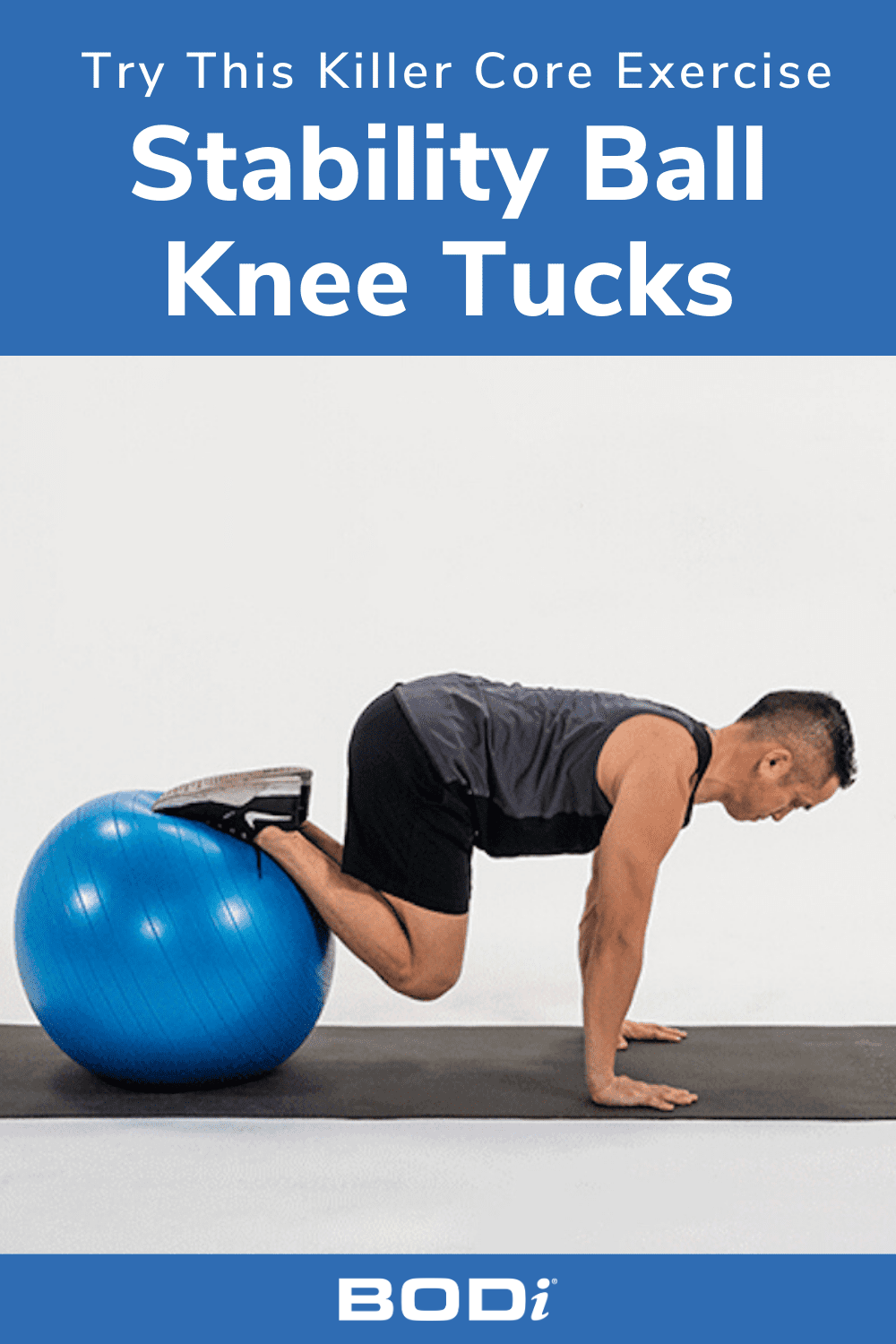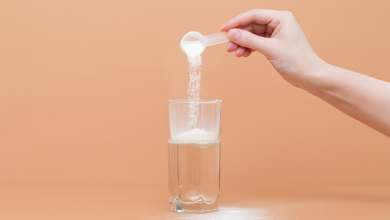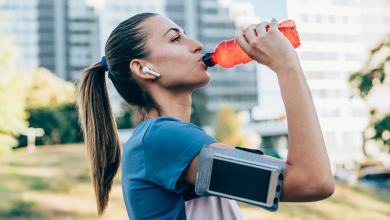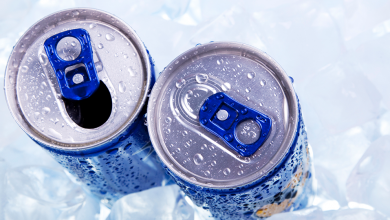Take Your Planks to the Next Level With the Stability Ball Knee Tuck
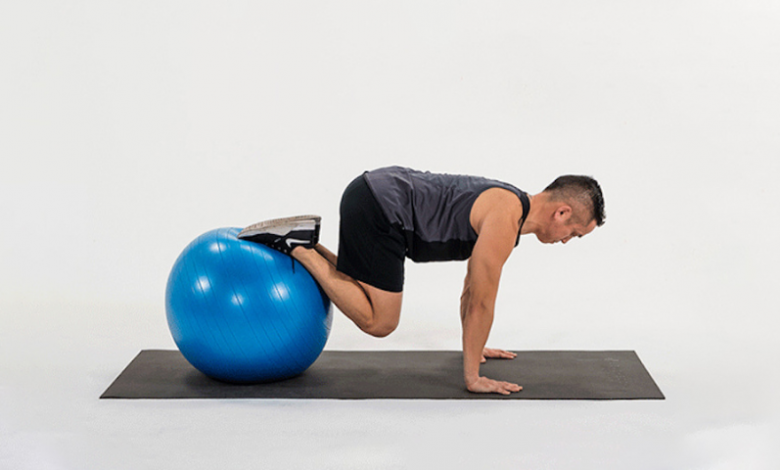
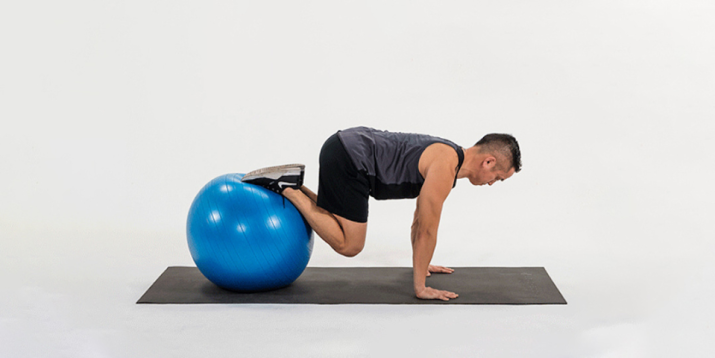
If you’re looking for a killer core workout that challenges your balance and gets every abdominal muscle engaged, look no further than your exercise ball. One of the best ways to use it: stability ball knee tucks — also known as a jackknife. (And once you’ve nailed this one, here are other stability ball exercises to master.)
Stability Ball Knee Tuck: Step-by-Step Instructions
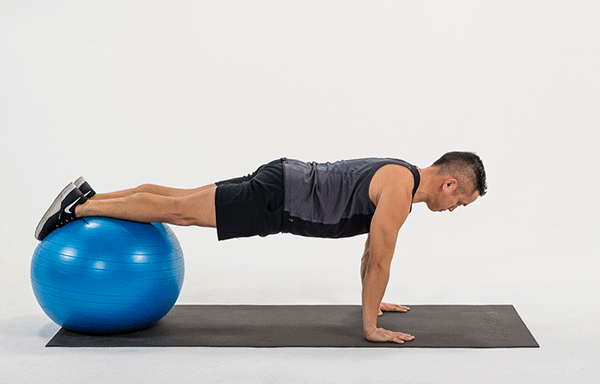
- Get in a high-plank position with your hands directly underneath your shoulders and your shins on top of a stability ball.
- Brace your core to keep your body in a straight line from head to toes. This is your starting position.
- Engage your core and bend your knees to roll the stability ball toward your hands until only your toes are resting on the ball, keeping your hips down as you do so.
- Pause, then slowly straighten your legs back behind you, returning to the starting position.
How to Make the Stability Ball Knee Tuck Easier
- Reduce the range of motion of your knee tuck.
- Use a smaller stability ball.
- Instead of your shins, rest your knees or thighs on top of the ball to reduce the work needed from your core to stabilize the movement.
Stability Ball Knee Tuck: Muscles Worked
Stability ball knee tucks are a great way to target your abs, as well as some other key muscle groups.
Abs
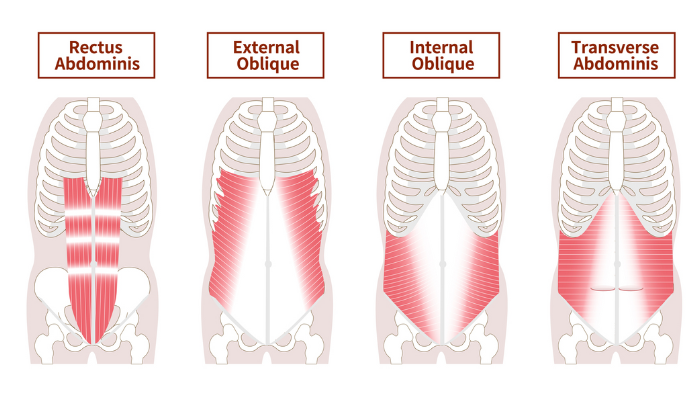
The main muscles you’re working during stability ball knee tucks are your abs. This exercise targets your entire core, from your six-pack rectus abdominis to the side obliques to your underlying “corset” abs (the transverse abdominis).
Hip flexors
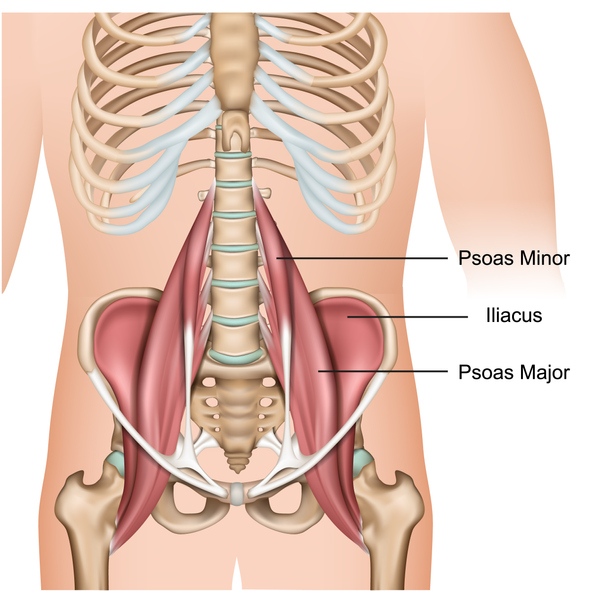
Your hip flexors, or psoas, support your abs and help to bring your knees to your chest. So if the front of your hips are feeling sore the next day, that’s totally normal.
Shoulders
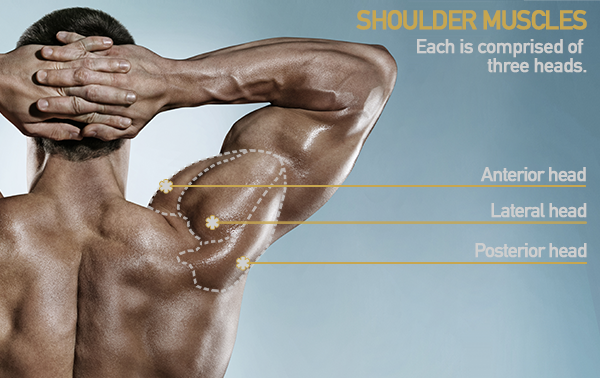
While you’re holding a plank position, your shoulders are stabilizing your position — and, also important, they’re keeping you from face-planting.
